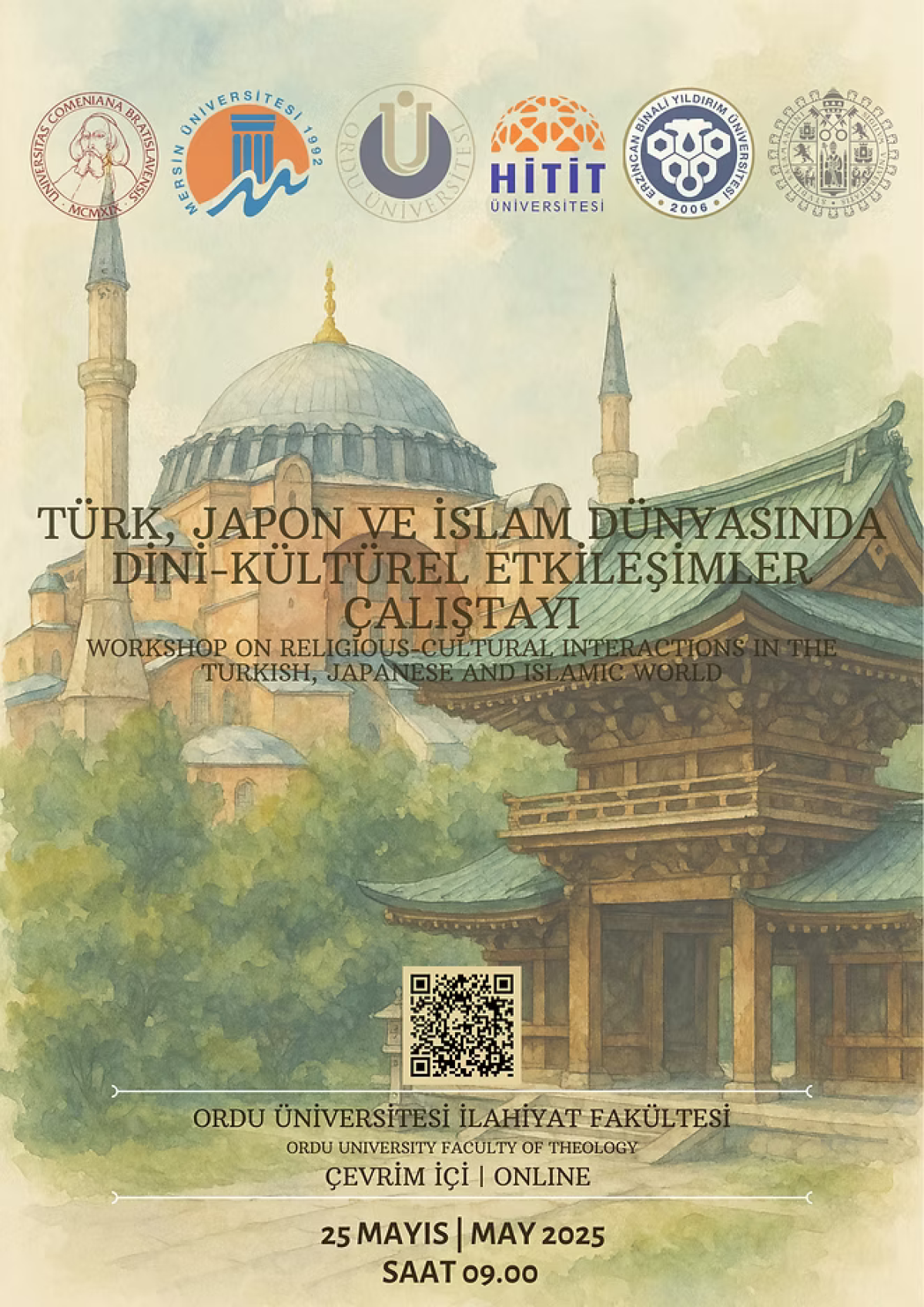
Religious-Cultural Interactions in the Turkish, Japanese and Islamic World

Ordu University, Hitit University, Erzincan Binali Yıldırım University, Mersin University, Comenius University and Salamanca University in cooperation with Ordu University, Hitit University, Erzincan Binali Yıldırım University, Mersin University, Comenius University and Salamanca University, “Workshop on Religious-Cultural Interactions in the Turkish, Japanese and Islamic World”, which will be held online under the leadership of Ordu University Faculty of Theology on 25 May 2025, is waiting for you.
In the workshop, papers on “Religious-Cultural Interactions in the Turkish-Islamic World” and “Religious-Cultural Interactions in the Japanese-Islamic World” will be presented and discussed. The structure of religious-cultural interactions will be examined through examples, and the possibility of coexistence and multiculturalism in religious and cultural interactions will be discussed.
The workshop aims to provide a comparative perspective on how communities with different religious and cultural characteristics relate to each other. In this event, the religious-cultural characteristics of the Islamic world are at the center. It is aimed to discuss, examine, evaluate the religious, cultural, social, political and economic developments of the Turkish world and Japanese geography with the Islamic world from past to present in the projection of religious-cultural interaction, coexistence, multiculturalism concepts, to determine which issues are effective in religious-cultural interaction, and to establish validity and reliability by discussing the issues identified. With the determination of the Turkish-Islamic world and the Japanese-Islamic world as the subjects of the workshop content, it is aimed to contribute to a better understanding of the dynamics of social life such as coexistence, multicultural social life, religious diversity in a comparative manner by discussing and discussing the cultures that can be seen as geographically distant or other from a scientific perspective by expert researchers of the field.
The workshop covers the understanding, determination, discussion and scientific evaluation of the economic, social and political interactions of the religious and community members in the Turkish, Japanese and Islamic World, with the religious-cultural perspective as the axis, as well as the understanding, determination, discussion and scientific evaluation of these interactions and relations. The workshop consists of two comparative topics in terms of its scope. The first one is the religious-cultural interaction of religion and society in the Turkish-Islamic world. In the sessions and round table discussions under this heading, it covers the comparison of the religious-cultural characteristics of the communities belonging to the Turkish-Islamic culture living in different geographies from the past to the present in addition to our country. This topic includes people, places, spaces and concepts that reflect traditional Turkish religious-cultural characteristics, as well as religious-social experiences, and people, places, spaces and concepts that reflect religious-cultural characteristics in the Islamic world. The second is the religious-cultural interaction of religious and social adherents in the Japanese-Islamic world. The sessions and round-table discussions under this heading include the comparison of the religious-cultural characteristics of the communities/groups of Japanese-Islamic culture that come from different geographies besides our country and live in Japan from the past to the present. This includes people, places, spaces and concepts that reflect traditional Japanese religious-cultural characteristics, as well as religious-social experiences, and people, places, spaces and concepts that reflect religious-cultural characteristics in the Islamic world.
We will be honored and delighted with your participation and contributions to our event “Workshop on Religious-Cultural Interactions in the Turkish, Japanese and Islamic World”.